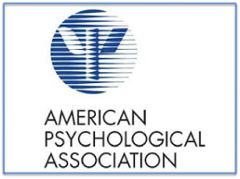In December 2015, the College of William and Mary’s Healthy Beginnings Project, which helps incarcerated women have healthier pregnancies and babies, received a $50,000 grant from the Anthem Blue Cross and Blue Shield Foundation.
Healthy Beginnings was founded in 2012 by psychology professors Danielle Dallaire and Catherine Forestell. They started the project with the goal of providing nutritional counseling and support to incarcerated pregnant women.
“I have been with the project since the summer it started,” Constance Hull ’16 said. “It was formed with the intention of providing support for incarcerated mothers by professors with developmental and nutritional psychology backgrounds. They developed nutritional counseling with a registered nurse, and since then, the project has expanded to offer these women different forms of support.”
The project was started through a grant from the W.K. Kellogg Foundation and later received funding from March of Dimes. Recently, the College, in collaboration with Virginia Commonwealth University, received the Anthem grant to provide further medical care to the women in the program.
The project now supports approximately 200 women incarcerated in prisons within an hour of Williamsburg.
“This funding is incredibly important,” Dallaire said in a press statement. “It allows us to continue to provide services to these women and expand partnerships with VCU and local health departments.”
Most prisons do not screen inmates for pregnancy, which can keep women from beneficial prenatal care.
Healthy Beginnings provides local prisons with pregnancy tests. Additionally, members of the Healthy Beginnings team conduct interviews with inmates and teach classes on maternal health and nutrition to the women in the program. Additionally, since the fall of 2014, Healthy Beginnings has been a nationally registered diaper bank, providing the participating prisons with diapers.
With funding from the new grants, researchers from the College will now partner with medical staff at VCU to further care through delivery. Healthy Beginnings will provide the names and due dates of the women to the labor and delivery unit at VCU Medical Center.
For the most part, the undergraduate students on the team assist in interviewing the women in the program and entering data into the Healthy Beginnings database. However, the students have also undertaken projects like the diaper bank to expand the support offered by the project. One member of the team, Nickole Medel ’16 assisted in research on prisons’ usage of shackles while pregnant women are transported and even in labor.
“There’s a trend that when women are transported to and from the hospital, and even sometimes when they are in labor, they will be shackled,” Medel said. “That shouldn’t be happening to pregnant women because it puts stress on their bodies, it puts stress on their babies. It can be harmful to their healthcare. It just provides discomfort and stress that’s really not necessary. When a woman is in the hospital in labor, she is really not a flight risk.”
Under Virginia state law, doctors can ask for handcuffs and shackles to be removed if they believe it hinders medical care. As part of the new grant, Healthy Beginnings researchers can work with medical staff at VCU to make sure they are informed of these laws to further help the women.
While outreach to the women after they deliver their babies and leave the prisons is often difficult for team members, the new grant improves their outreach capabilities as it allows them to partner with the VCU Hospital and refer them to doctors who are informed of the women’s rights.
After the women give birth, they can choose to remain in contact with the program and its resources. Healthy Beginnings research is being done to see how to make these women less likely to be rearrested after being released. This grant money furthers the project’s capabilities to help once the babies have been born.
“I think Healthy Beginnings is important because I don’t think people realize how big of issues these are for incarcerated mothers,” Ashley Woodards ’16 said. “I think it raises awareness and it exposes William and Mary to new issues. These women are not just a study, they are people we care about, and this grant is important because it will help us help them.”

